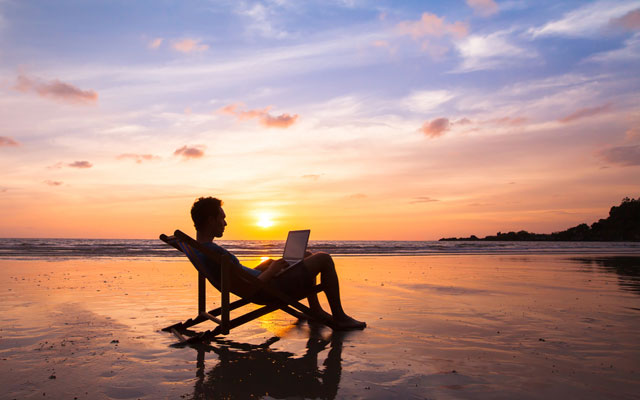When travelling for work, employees from Singapore want local leisure activities to be part of their travel experience too, according to new data on the growing ‘bleisure’ travel segment from Amadeus’ Journey of Me report.
The report revealed that 40% of Singaporean business travellers find recommendations that help them plan their itinerary the most useful, and one in four (25%) value sightseeing recommendations

Business travel within Asia is growing at twice the pace of the rest of the world and looks set to overtake the top-spending Americas within the next 10 years. To help tap this growth opportunity and get inside the mind of the business traveller, Amadeus’ research looks at the needs, habits and motivations of the Asia Pacific business traveller. The research, conducted in collaboration with YouGov, surveyed a total of 6,870 respondents across 14 markets in Asia Pacific.
Cost and convenience driving users in the sharing economy
The research found that while employees don’t need to bear the cost of their business travel, Asia Pacific business travellers are just as cost conscious as their leisure travel counterparts, and are most interested in receiving recommendations that help them save money (34%).
The rise in ‘bleisure’ travel is undoubtedly a contributing factor; with more than 60% of business trips now including a leisure portion, and many business travellers are shopping around for the best deal.
However, not all Asia Pacific business travellers are the same. While employees from Singapore find recommendations that help them save money and plan their itinerary the most useful (both 40%), business travellers from China, India and Vietnam prefer recommendations that ensure their safety (37%, 34%, and 37% respectively), Japanese employees prefer recommendations that make their travel more comfortable (39%) and Koreans prefer recommendations for sightseeing (35%).
The focus on cost has seen the sharing economy – specifically ride-sharing services like Uber and Grab, and home-sharing services like Airbnb and Couch Surfing – become widely accepted for business travel, even more so than for leisure. Almost half (46%) of business travellers use ride-sharing services to get around during their trip, compared to 31% of leisure travellers.
Alongside cost saving, the top reasons business travellers use the ride-sharing and home-sharing services is for ease and convenience (59% for ride-sharing, 50% for home-sharing) and better quality and service (43% for ride-sharing, 39% for home-sharing). However, for Australian (47%) and Hong Kong (36%) business travellers, the flexibility of the sharing economy is the top reason that they choose to home-share.
Renaud Nicolle, vice president, travel channels, business travel Asia Pacific, Amadeus, said: “The rise of ‘bleisure’ means that business travel behaviours are becoming more aligned to leisure travel, including cost consciousness. Sharing economy providers benefit from this trend thanks to the competitive products, flexibility and convenience they are able to offer and deliver. Business travel agencies in Asia Pacific need to enhance their product and service offering to be able to cater for the experience their travellers expect.”
Access to maps is more important than work emails
While business travellers are cost conscious, there is one creature comfort they will happily pay for – connectivity.
While leisure travellers rely mainly on Wi-Fi, business travellers are open to multiple options to stay connected, and are happy to invest. Wi-Fi remains the popular choice, but purchasing a local sim card at the destination is a close second for business travellers from Indonesia (54%), Singapore (52%), Philippines (51%), Hong Kong (47%), New Zealand (45%), Vietnam (45%) and Malaysia (44%). On the other hand, Korean (64%) and Japanese (40%) business travellers prefer to use international roam-as-you-go services, while those from India (56%), Thailand (51%), Australia (43%) and Taiwan (42%) prefer to buy an international phone or data package before they leave home.
While it would make sense that these employees choose to stay connected to keep up-to-date with work, this is not listed as the highest priority by any Asia Pacific business traveller, except those from Korea (56%). Instead, access to maps and location information is rated as the top priority for staying connected (53%), followed by letting people know they’re safe (50%).
Business travellers from Singapore are mostly aligned with their regional counterparts, however they place a greater priority on local leisure activities. While access to maps and location information is their top priority (67%), researching things to do at the destination is a close second (63%), on par with letting people know they’re safe (63%).
Recommendations wanted
Travel providers have a unique opportunity with business travellers, as they find the recommendations they receive from various platforms more relevant than leisure travellers do.
Recommendations that helped them save money (34%), ensured their safety (31%) and made their travel more comfortable (29%) were deemed the most useful. The top three sources they listed for relevant recommendations were online booking websites (51%), social networks (49%) and travel review sites (47%). However, in Korea and Taiwan, travel agents are still rated as the top source (56% and 52% respectively). Even post-trip, two-thirds (66%) of business travellers are open to receiving recommendations, most likely because they will return to that destination in the future.
“Business travel is a real growth opportunity in the Asia Pacific region, but to capitalise on this, travel providers need to have a clear understanding of the needs, habits and motivations of the business traveller. They also need to be ahead of the curve when it comes to technology, ensuring they can offer the technology that business travellers have adopted and habitually use.
“It is all about personalisation, and pushing the right message at the right time to the right traveller, every time. This level of personalisation makes their business trip simple, stress-free and rewarding at every stage of the journey – from search and booking to expense reconciliation; from airport parking, lounge access, hotel and meeting rooms to departure control systems and baggage check-in,” Nicolle said.





















